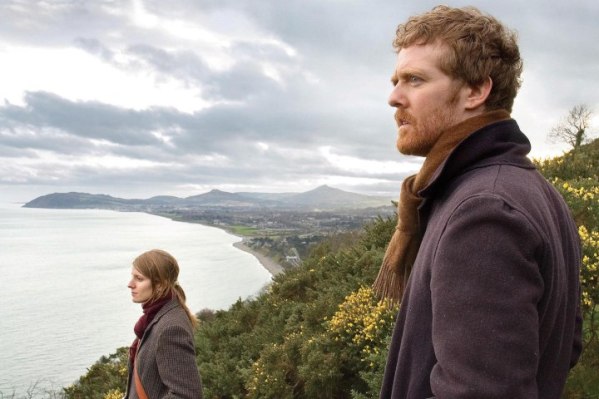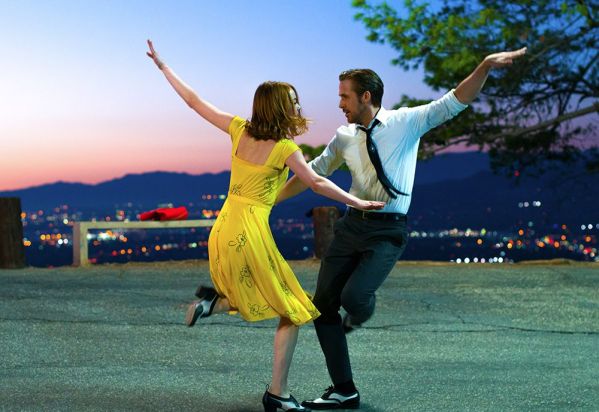
Matt (Tom Wilkinson) and Ruth Fowler (Sissy Spacek) are stricken with grief in Todd Field’s 2001 indie drama In the Bedroom. (Source: The Playlist)
In 2016, a little movie came out called Manchester by the Sea. Set in a small New England town, it contained a powerful message involving grief. As Lee, the main character, returns to his old hometown, his past slowly begins to creep up on him after his brother dies. Its depiction of New England feels as if the audience is watching real people battling really tough situations (not to mention, the way they talk).
Fifteen years earlier, there was a movie that received unanimous praise when it premiered at Sundance. It also became the first movie from a major film studio (Miramax) that was not only set, but also filmed in the beautiful State of Maine. In the Bedroom (2001) does sound like the title for a sexy thriller, but director Todd Field (Eyes Wide Shut) creates a little something that will haunt viewers once the credits begin to crawl.
Based on the short story Killings, Frank Fowler (Nick Stahl) has recently returned home to Camden, Maine, to work on the harbor after graduating from college. He plans on going for a graduate degree in architecture. His father Matt (Tom Wilkinson) is a local doctor, who loves listening to the Boston Red Sox on the radio. His mother Ruth (Sissy Spacek) is a music teacher at the Rockland High School, who is teaching a summer music program.
However, they are both concerned about their son. The reason being is because Frank is dating a woman named Natalie (Marisa Tomei), who is twice his age and has two young children. When Natalie’s ex-husband Richard (William Mapother, Lost) returns to make things right for Natalie and the children, all hell begins to break loose.
The titular “bedroom” refers to the back compartment of the lobster trap. As Matt explains early on, the lobster enters the trap (“kitchen”) As it catches the bait, it soon becomes trapped (“bedroom”). While showing an injured lobster to one of the kids, he says if there are more than two lobsters in the “bedroom” compartment, something like that is going to happen.
This becomes a metaphor throughout the film. For instance, the scene where Richard comes into the house to shoot Frank dead. This becomes the set-up of what is to come of our main characters. Matt and Ruth begin to grieve over their son while being forced to see Richard out on bail, which ticks Ruth off after hearing he’s only accused of manslaughter.
The performances from the all-star cast are one-of-a-kind. But–Spacek and Wilkinson really carry it home. Out of the five Oscar nomination this movie received, they were both nominated, respectively, for Best Actress and Best Actor. Known for his performances in The Full Monty, Michael Clayton, and The Grand Budapest Hotel, the British actor never lets his accent slip to give such an emotionally moving performance. Same goes to Spacek, who rose to fame with Badlands, Carrie, and winning an Oscar for Coal Miner’s Daughter. She gives one of her best performances as Ruth. Notice how she isolates from Matt. They both avoid discussing their pain while dealing with this tragedy. Then, they confront each other in one of the most natural arguments ever put to film. Matt accuses Ruth of being “too controlling”, while Ruth accuses her husband by letting Frank “get away with everything.” This indicates why Matt decides to plan an act of revenge to make them settle the tragedy once and for all.
With his slow-burning screenplay and sensitive direction, Field allows the viewer to understand Matt’s world and his morality of the whole situation. Hell, even Matt’s friends begin to understand what he and Ruth have been going through. In one scene, he and his friends are playing cards one night. Everything goes silent. Until Carl (W. Clapham Murray), who loves reciting poems, quotes a verse from “My Lost Youth” by Henry Wadsworth Longfellow:
There are things of which I may not speak;
There are dreams that cannot die;
There are thoughts that make the strong heart weak,
And bring a pallor into the cheek,
And a mist before the eye.
And the words of that fatal song
Come over me like a chill:
“A boy’s will is the wind’s will,
And the thoughts of youth are long, long thoughts.”
The scene would have gone down as manipulative. What makes it work, though, is it steers clear of all those cliches about losing someone dear. Take a look at Matt’s face after the recitation. He knows there is something that needs to be done. Everything was going just fine until the tragedy. His friends are always there for him no matter what. The poem serves as a reminder to avenge what was so wonderful in life and to have it all thrown away in a blink of an eye. When the climax comes, it’s damn near impossible to look away.
In the Bedroom is one of those rare dramas from the early 2000s that hits all of the right notes. There will never be any other movie set in Maine containing so much raw emotion from its characters. It’s one of those movies I’ll watch for the rest of my life.














